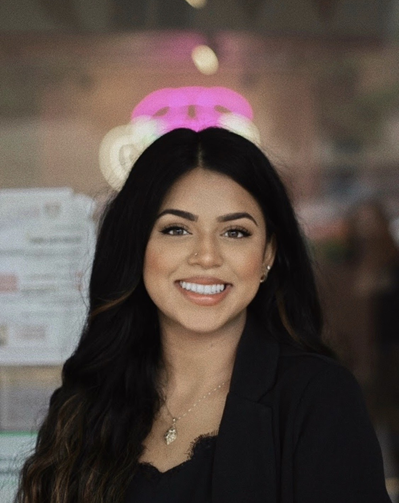Meet HS Student Fatima Jamal!
This week, Health Studies senior Fatima Jamal shared her story, in her own words, with SNHS. We would like to thank Fatima for sharing this account of her educational journey thus far.

About Fatima
Hi everyone! My name is Fatima Jamal (she/her) I am currently a senior graduating in Spring 2021. I currently work as the Achieving Community Transformation (A.C.T.) Chair at UWB. A.C.T. is a student organization that provides opportunities for service, civic engagement, and social justice based on cultivating passion and the understanding of student and community needs. Especially right now, during the pandemic the community is facing a lot of difficult conditions that are affecting the health of many individuals, physically and mentally. It’s so important to check in on people in your community and find effective ways to help out, A.C.T. is continuing to do so by holding virtual events for community bonding and civic engagement.
Past Experience
Summer 2020, I had the opportunity to work as a Fellow at The Washington Bus, an organization that builds the political power of young people across Washington State. I got the position as the Campaign Manager for Housing For All, I was able to meet with various organizations doing work on this issue, to learn about their strategies and tactics to create change. I was able to hold peer listening sessions where I was able to have an open conversation with young people in the community and understand the effect housing instability had on their mental health. The pandemic forced many students to look for new living conditions. Some having to be forced to go back to an abusive household or being homeless and dealing with housing instability. Mental health tends to be a topic that isn’t given enough importance as it should, especially in this day of age the original idea of mental health in relation to self-care seems to be lost.
Self Care & Mental Health Research
I was able to deeply reflect on what self-care is and the different aspects such as mainstream vs radical self-care. Mainstream, as in what tends to be portrayed in media that encourages individuals to spend money to feel better. Self-care is seen as a luxury, especially by minorities. From my research, I noticed that children of immigrants tend to feel guilty spending time on self-care, due to seeing their parents work 24/7 so they get wrapped around the idea of having to be productive nonstop without allowing their mind and body to have rest. During the pandemic, you’re really able to see the effects of this idea on young people especially not being able to understand how to handle their emotions and create a work-life balance. I emphasize radical self-care because this concept is the opposite of mainstream. Radical self-care is the act of self-empowerment, choosing to focus our available time and energy where we actually have influence — with ourselves and our choices. Self-care was originally a term used in the medical field to create self-worth through acts of care and preservation and carried on to practice community care through distributing food to those in need, creating health clinics, education programs, and more. This idea is greatly lost nowadays, that community cares a way of self-care and how it was originated.
Having an open conversation with students at UWB about the effects of the pandemic and how they have been implementing self-care, made me notice that many didn’t understand how to implement radical self-care. Through workshops, I walked students through a reflective activity to help them understand their emotions better. I had many reach out and tell me how helpful this activity was for them and how it allowed them to truly understand that self-care could be seen as community care, improving relationships, honoring emotions, having a healthy lifestyle, doing at least one enjoyable thing each day, or even simply the act of doing nothing and resting.
Why Health Studies is Important to Her
The Health Studies field is very important to me because it allows me to truly understand how I could improve my community and the actions steps I need to take in order to see change. The Health Studies classes at UWB, allowed me to get a better grasp of the root of problems that are currently happening and how I could get involved with organizations doing work on these issues.
